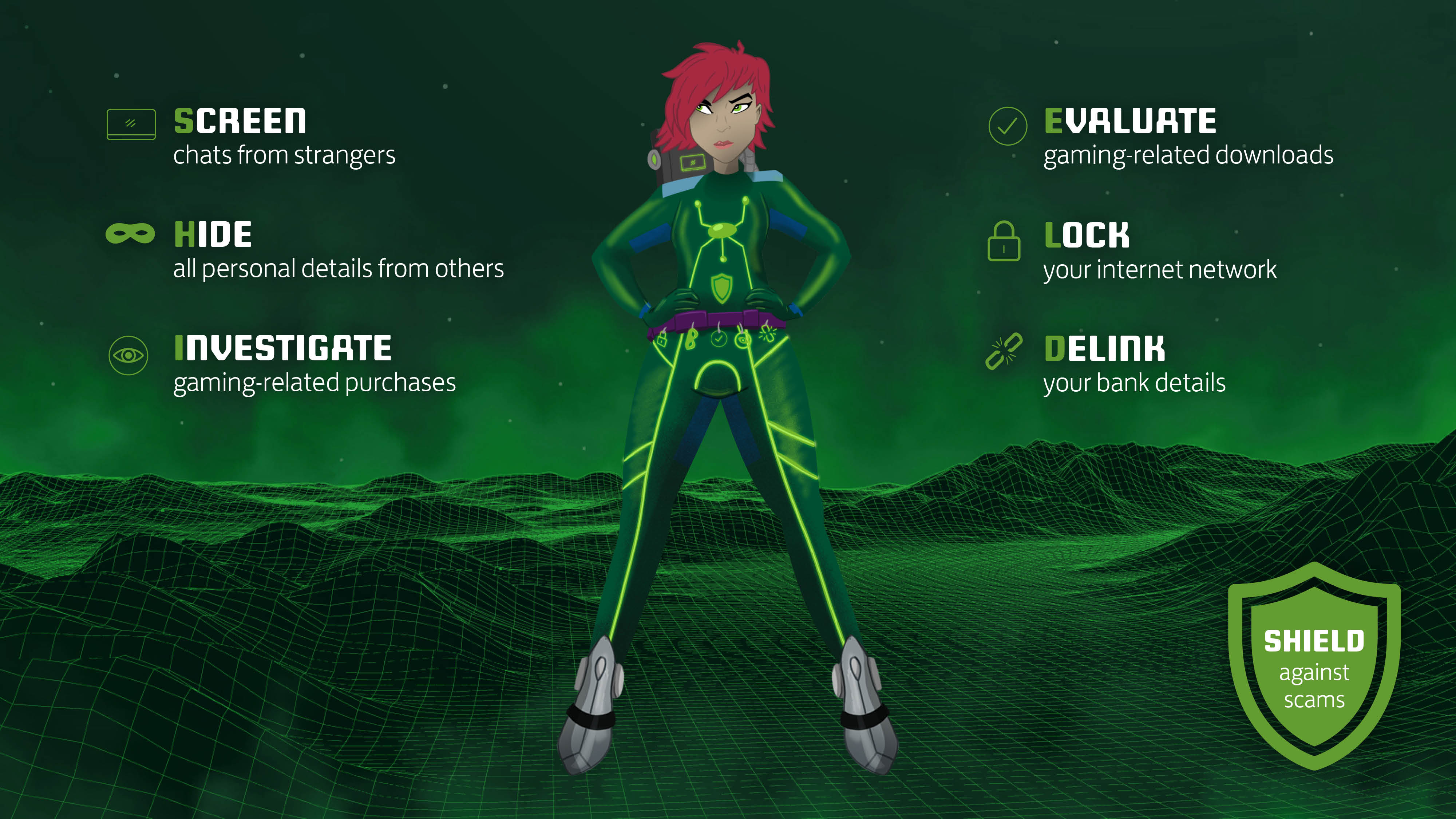Lloyds Bank Campaign Helps Video Game Players Shield Against Scams

A new initiative from Lloyds Bank aims to help video game players understand and protect themselves against fraud, with the launch of a new Game Players Code.
It has teamed up with games industry trade body, Ukie, to share preventative advice for players of all ages to protect players from being duped, after Lloyds Bank research showed that one in five players share personal details online.
Although we usually associate scammers with social media and unsolicited texts from supposed delivery firms, games can be another place where it's possible to get tricked if you are not paying attention.
Currently, less than three in ten players are aware of how to spot a gaming-related scam. The research also found that phishing emails are the most common tactic fraudsters use to dupe video game players (36%), followed by in-game chats (32%) and malware installation (28%) – where users are prompted to download a software plug-in that installs malicious software onto their device.
With one in five people reported either being a victim of an in-game scam or know someone else who is, the increasing interest in games both generally and in the wake of the Covid-19 pandemic means it’s more important than ever to help equip players with tactics to beat away scammers.
Philip Robinson, Fraud Prevention Director at Lloyds Bank comments: “Scammers are always looking for new ways to trick people out of their money and the world of video games is no exception. These are often organised criminal gangs who don’t care about who they are defrauding and will happily groom young players to gain their trust and access their personal information.”
In particular, Lloyds Bank research identified a handful of common risks that players can face in-game from fraudsters:
- One in seven players had considered transferring money to someone met online through a game without having met them in real life.
- One in five reported disclosing personal information such as their real name or date of birth with someone they hadn’t met.
- A large number of players make in-game purchases without putting in place the available controls or settings to put up friction at the point of purchase or keeping bank details linked to online forms.
- Players who downloaded games were often not thinking of their account security, especially if they’re downloading from less trustworthy stores.

Fortunately, there are some easy to follow, common sense tips that players can keep in mind to avoid these challenges from the get-go.
Introducing the Game Players Code
The Game Players Code is a six-point guide to help video game players actively take steps that’ll protect them from fraud.
Players can SHIELD themselves from many of the common risks identified in the research by following these simple pieces of advice:
- SCREEN any chats from strangers, as well as unexpected gifts and special edition or time-limited offers. Never transfer money to someone you haven’t met in person.
- HIDE personal information from others at all times, concealing your personal details where possible to avoid them being leaked.
- INVESTIGATE any gaming-related purchases before handing over money, such as checking whether the website is blacklisted on https://sitechecker.pro/blacklist-checker/ and only making card payments that offer greater consumer protections.
- EVALUATE whether gaming-related downloads are being made from established trusted sources and whether they are safe by checking for malware via https://www.virustotal.com/
- LOCK your gaming network by using password managers, two-factor authentication within platforms and anti-virus software.
- DELINK your bank details from gaming and online browser accounts. Having two-factor authentication set up on bank transactions and using prepaid cards will also help to keep your money protected.
“W2S” aka Harry Lewis of the YouTube video game group The Sidemen, and gaming influencer Clare Siobhan have joined forces with Lloyds Bank to raise awareness about the risks of gaming-related scams and encourage their followers to SHIELD themselves against scammers.
And the games industry itself has come in to back the campaign, recommending taking extra steps to implement spending controls within games and at a platform level to raise their defences further.
Dr Jo Twist OBE, CEO of Ukie, said: “Games are a hugely popular form of entertainment for all ages and games businesses work incredibly hard to ensure players have a secure and enjoyable time within games themselves. Malicious fraudsters, however, are always looking for opportunities to scam consumers in an online world. Education and awareness for all ages is important across every area of our digital lives so this initiative is a welcome one to help players be on guard and learn how to protect themselves further.”





